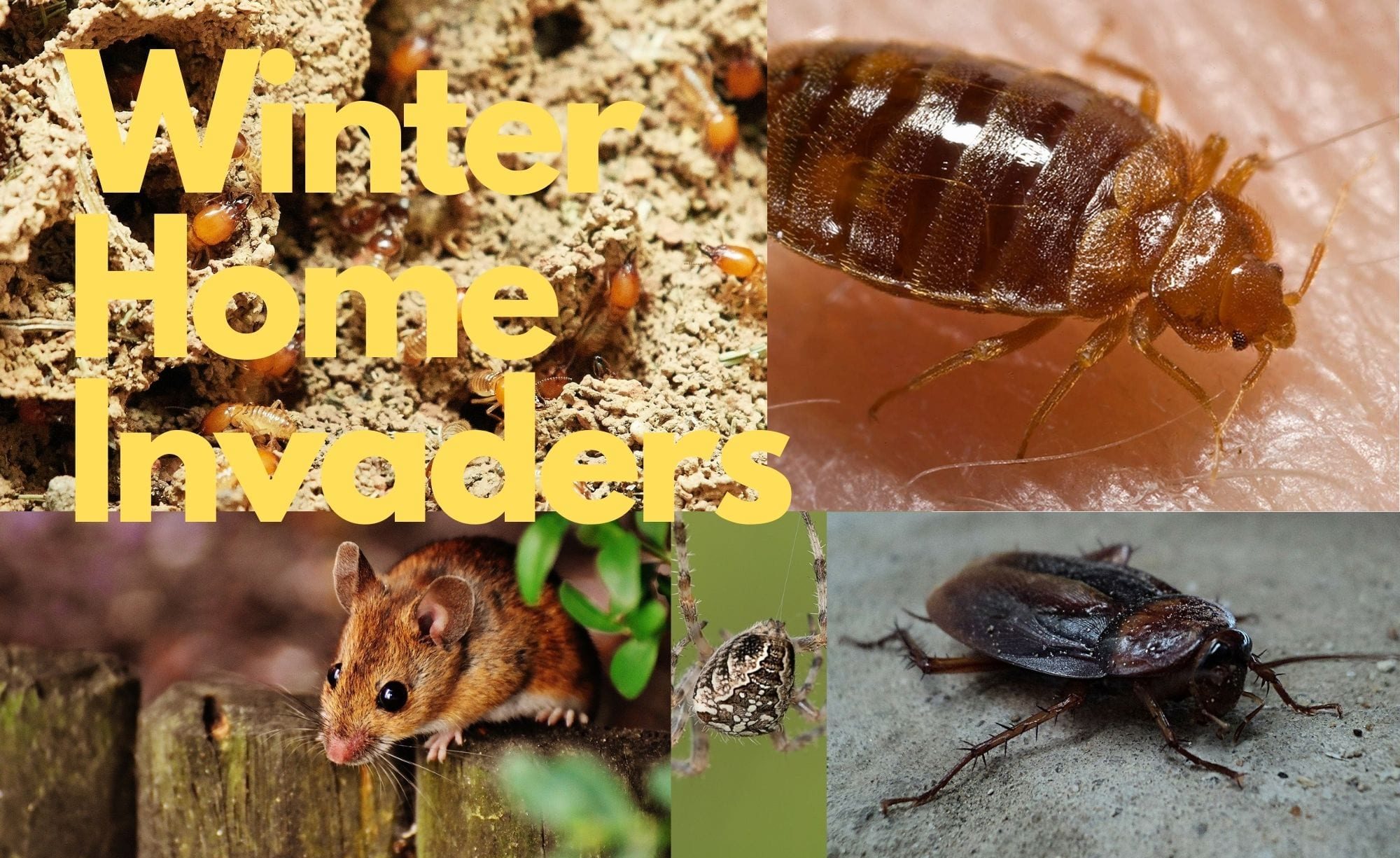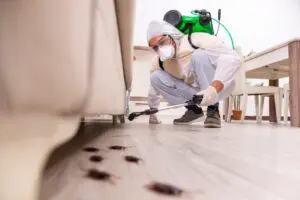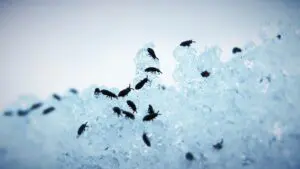

Winter weather is great for all of the fun activities it allows. No matter what winter activity we choose to partake in though, we all spend our winter evenings warming up indoors. Unfortunately, we may not be the only ones enjoying the warmth of our homes. Many pests will move into our homes to wait out the cold months. Here is a list identifying the most common winter invaders and how to prevent them.
General Prevention
Before we get into the list of winter pests, here are some general pest prevention tips. Most pests enter homes through cracks and holes, so it is important to seal them all. Use a silicone-based caulk to seal the cracks in the foundation and walls, as well as the gaps around windows and doors. Replace damaged shingles and weather stripping. Install chimney caps, put wire mesh over air vents, and seal any gaps around the holes through which pipes and utility lines enter the home. Keep tree branches and shrubs trimmed away from the exterior of your home, and keep all firewood and debris piles a good distance from outer walls. Read on to learn prevention methods that are specific to each type of winter pest.
Rodents
Rodents are some of the most problematic winter invaders. The rodents that most commonly move into our homes during the winter are mice, rats, and squirrels. Rodents like to make their nests in protected, dark, and secluded areas like attics, basements, chimneys, cabinets, storage areas, and between the layers of walls. Rodents have a tendency to chew through almost anything, which can cause extensive property damage like flooding or ruined insulation. They also pose a serious fire hazard if they chew through electrical wires. In addition, rodents are prominent carriers of various diseases. They are known to spread salmonella, tularemia, jaundice, rat-bite fever, Hantavirus, leptospirosis, and more. Luckily, there are some steps you can take to make your home less attractive to rodents this winter. Seal any holes or cracks that lead into the home using steel wool and caulk. Keep clutter to a minimum, and try to avoid leaving storage boxes on the floor. Plastic storage containers are a good alternative to cardboard, because they are not as easily chewed through. Store all food, including pet food, in airtight containers. Clean up any food residue right away and empty trash cans often. Rodents should be taken care of immediately, so check regularly for any signs of rodent activity, like droppings, chew marks, or grease marks.
Cockroaches
The popular belief that cockroaches can survive almost anything is actually not true. In fact, they cannot survive in temperatures below 15 degrees Fahrenheit, which means they must find a warm place to live during the winter. They tend to populate areas that are dark and close to food and moisture. Some such places in homes are basements, crawl spaces, bathrooms, and kitchens. They particularly like to live under sinks and appliances. In addition to spreading bacteria, cockroaches can trigger allergies and asthma symptoms, especially in children. To prevent them from moving into your home, repair any leaky or clogged pipes, keep your gutters clean, vacuum often, keep both your food and your pet’s food in airtight containers, clean up any food residue right away, and regularly clean underneath and behind sinks and appliances.
Spiders
Most of the time, the spiders we see in our homes are those that live inside year-round and have ventured out of their hiding spots to find mates. In the winter, however, some outdoor spiders will wander inside to find shelter from the harsh weather. Some of these outdoor spiders are more dangerous species, like the brown recluse and the black widow. These spiders like to hide in secluded, low-traffic areas like basements, cardboard boxes, window moldings, and even shoes and clothes. Typically, these spiders will only bite if they are pressed against the skin or if they feel trapped and threatened. These unwanted guests can be avoided for the most part by taking certain precautions. Keeping outdoor lights off will attract fewer spiders to your home. While spiders themselves are not attracted to light, many of the insects they feed on are. Insects will gather around light sources which will attract hungry spiders, some of whom may be looking for a place to spend the winter. Store clothes and shoes in plastic containers, not cardboard. Be sure to inspect or shake out any clothes or shoes that have not been worn in a while. Keep clutter to a minimum, and vacuum regularly. Vacuum or sweep up spider webs as soon as you find them. If you are bitten by a brown recluse or black widow, seek medical attention immediately. Delaying medical help can cause symptoms to steadily worsen or even become fatal.
Bed Bugs
Bed bugs are another pest that can be a problem any time of year. During the winter season, though, traveling is quite common. Unfortunately, traveling is one of the main causes of bed bug infestations, especially during times when many people are traveling. Any time you travel, especially during common travel times like winter, take steps to avoid carrying bed bugs back into your home. Inspect the room you will be staying in for signs of bed bug activity like blood specks and brown spots. Always inspect your clothing and luggage carefully before returning home, and wash and dry clothing on high heat. Precautions you can take when you’re not traveling include vacuuming often, using a mattress cover that covers both the mattress and box spring, and washing and drying bedding on high heat regularly.
Termites
Although termites are most active during the warmer months, their activity does not cease when the winter comes. They can continue to reproduce until February, and subterranean termites are especially aggressive feeders during the winter. This means that the risk of termite damage is present no matter what the time of year. Because of this, it is important to pretreat your home to prevent an infestation, and always be on the lookout for signs of termite activity.
If you find any winter invaders in your home this year, don’t hesitate to give us a call. We’re here to help.






